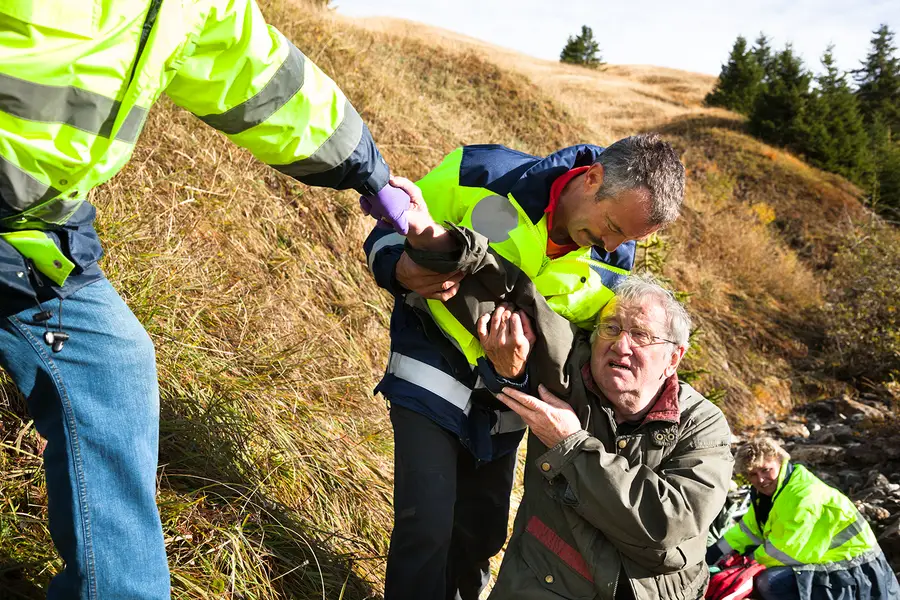
Disasters often happen without much warning and can affect anyone. They can be weather-related (such as earthquakes or hurricanes) or human-made (such as mass shootings or the collapse of bridges or buildings). People living with dementia are particularly vulnerable during a disaster due to impaired insight and problem-solving ability, the possibility of being separated from a caregiver who understands their situation, and the possibility of becoming disoriented and lost. People living with dementia may not understand the role of first responders and may resist someone trying to get them to safety.
Dementia symptoms are worsened under stressful conditions such as increased agitation, aggression, wandering, and hallucinations. A person may be unable to manage daily activities that they previously could. Depending on the type of dementia, a person may experience other distressing symptoms such as impaired motor control affecting balance and falls risk which are made worse in an unfamiliar environment. Here are just a few examples illustrating the importance of helping a person living with dementia to prepare for the possibility of a disaster:
- After Hurricane Katrina, many frail elders with cognitive impairment were not able to access shelter, medical care or services at the Astrodome and even if they did, there was no formal plan to ensure that they were assisted with eating, bathing, toileting, or other activities of daily living.
- The mother of a firefighter killed in the 9/11 attacks waited for him to return home as he always did after his shift. When he didn’t come home, she became increasingly anxious, confused and disoriented. Fortunately, others were aware of her situation and came to her aid.
- An extreme ice storm shut down everything in upper east Maine. Residents were in their homes with no heat for 3 weeks. During that time, first responders were not able to check in on residents in more remote areas. Some of these residents were living alone with dementia.
As the Co-Director of RTI International’s National Alzheimer’s and Dementia Resource Center, funded by the Administration for Community Living, I had noticed that there was very little information for people living with dementia and family members on what to expect in the event of a disaster and how to prepare for it. In response, our team developed a toolkit with input from the U.S. Department of Health and Human Services Office of Emergency Management and the National Association of Area Agencies on Aging as well as aging services professionals from communities impacted by disasters including San Francisco, Houston, Honolulu, Boca Raton, Puerto Rico and New York City. The Disaster Planning Toolkit for People Living with Dementia is made up of seven easy-to-use tip sheets and checklists for persons living with dementia, their families, and others who interact with them to help plan and prepare for a disaster.
Toolkit sections include:
- Information on disaster planning, both for staying in place and for evacuating during a disaster.
- Tips on developing a communication plan for a disaster and sharing it with individuals who the person trusts.
- A checklist of items specifically to support the person living with dementia if they need to evacuate or stay in place for a disaster.
- A fillable form for collecting personal information, such as medical conditions and care needs.
- A checklist of considerations to help people who have dementia and live alone to prepare for disasters.
- Information and issues to consider if the person living with dementia is displaced from familiar surroundings.
- Strategies for family members, emergency personnel, and others to anticipate needs and respond to different symptoms of people living with dementia.
People living with dementia have specific needs that are not fully addressed by most public health departments' disaster preparedness activities. Therefore, it is important to help a person living with dementia make a disaster preparedness plan and to review the plan at least once a year. This toolkit will help them, and those who provide support for them, prepare for changes in the person’s health or living situation.
